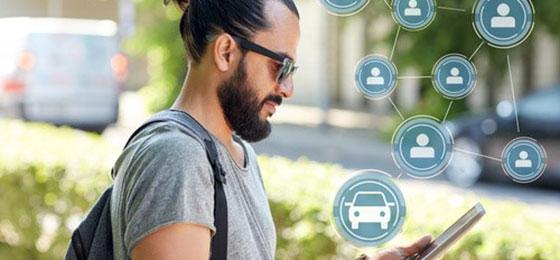Nothing works on its own – synthesis on the main topic of “Mobility Behaviour”

The main topic of “Mobility Behaviour” shows means of achieving greater efficiency in the field of mobility. The synthesis will be available at www.nrp-energy.ch.
Mobility in Switzerland is characterised by a high degree of motorisation and widespread multimodality. Fundamental technological changes have the potential to reduce the high energy consumption accounted for by transport. However, this won’t work without measures that make our mobility behaviour more energy efficient. Several projects of the NRP "Energy" have therefore investigated how this can be achieved. The synthesis on “Mobility Behaviour” brings together the key findings:
- Voluntary actions alone will not sufficeThe results of the NRP "Energy" show that voluntary actions aimed at bringing about energy-efficient mobility behaviour only work to a limited extent. In order for new products and offers to achieve energy savings, corresponding regulations are required
- New technologies are used too little for energy-saving objectivesUntil now, energy saving has only taken centre stage on rare occasions when it comes to the designing and utilisation of digital tools. This also applies to digital automation technologies in the area of logistics.
- The impact of new offers is limited by rebound effectsMeasures in the transport sector are extremely susceptible to rebound effects – not least due to the high share of leisure mobility.
In light of technological changes, the following measures, in particular, provide opportunities to nevertheless reduce mobility-related energy consumption:
- Use both push and pull measures!On the one hand, attractive offers are required that encourage people to modify their behaviour. These need to be communicated in a target-group-specific manner. On the other hand, intelligent accompanying regulations are required to provide incentives and stipulate sanctions.
- Use the potential offered by digitalisation at all levels!The energy-saving potential offered by digital technologies is a long way from being exhausted with respect to both everyday mobility and urban freight logistics. Promotional conditions and regulations must guide the development of digital offers in the desired direction.
- Prevent rebounds with clever measures!Digital feedback systems that arouse an individual’s personal ambition to achieve savings can help to get closer to achieving this goal on a voluntary basis. Rebound effects need to be investigated further and prevented in a targeted manner with promotional formats.
The complete synthesis on the focus area of “Mobility Behaviour” will be available from 18 September 2019 on the web portal at www.nrp-energy.ch.
La synthèse thématique "Comportement de mobilité" sera disponible dans son intégralité sur le portail web www.pnr-energie.ch à partir du 18 septembre 2019. C’est également à cette date que le Prof. Dr. Andreas Balthasar, président du comité de direction du PNR "Gérer la consommation d’énergie" (PNR 71), et Dr. Roman Rudel, responsable du projet "Compétition virtuelle pour une mobilité individuelle durable" du PNR 71, présenteront la synthèse dans le cadre de l’"Arène suisse de la mobilité".
